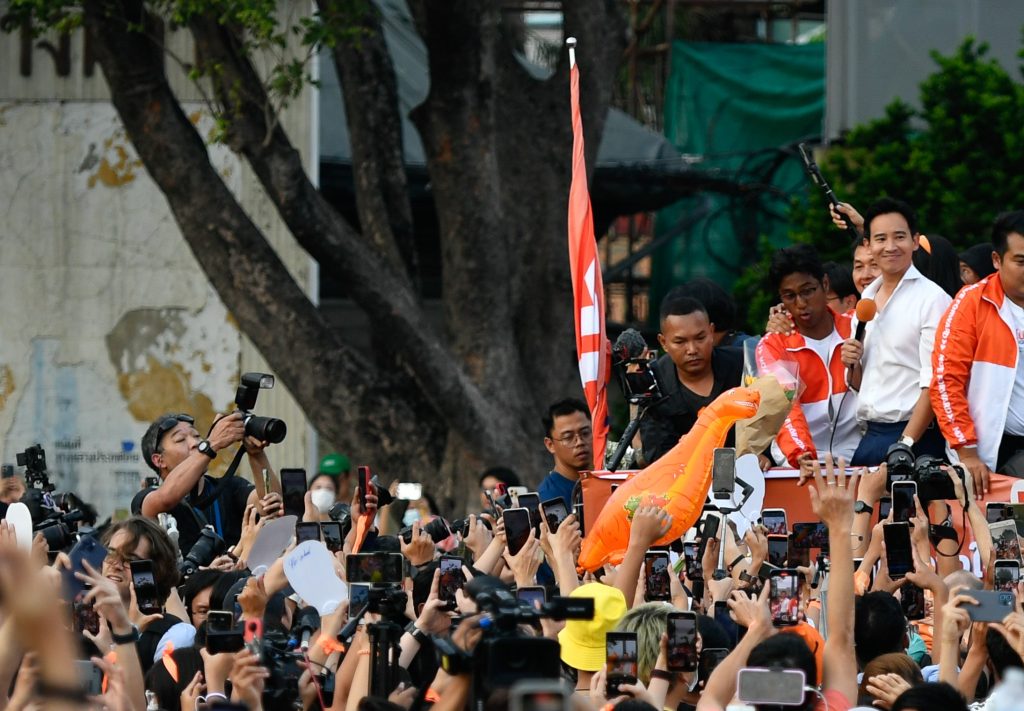
Last week, the leaders of the Association of Southeast Asian Nations (ASEAN) met on the island of Flores, Indonesia, for the annual ASEAN summit and related meetings. Once again, the post-coup conflict in Myanmar was at the top of the agenda.
To highlight ongoing difficulties for ASEAN policymakers, at the start of the week staff from the Indonesian and Singaporean embassies in Yangon and personnel from an ASEAN humanitarian assistance centre travelling in Myanmar’s Shan State were shot at by unknown assailants.
By the end of the week reports were appearing of a massacre by the military of 19 civilians, including four children, in a village in the central Bago Region. This followed an airstrike with a ‘thermobaric’ munition on 11 April that caused over 160 deaths, including children, in the village of Pa Zi Gyi in northern Sagaing Region, which Human Rights Watch called an ‘apparent war crime’.
In response to the conflict in Myanmar, the statement at the end of the Summit again called for an ‘immediate cessation of violence in Myanmar’ and reiterated support for the failed ‘Five-Point Consensus’, even though the Summit’s Chair, Indonesian President Joko Widodo, admitted there had been ‘no significant progress’ on the plan. Such a mild diplomatic response to the unfolding crisis is a consequence of the need for consensus among ASEAN members and represent the lowest common denominator of concern about Myanmar.
Still, some members of ASEAN have been forceful in their criticism of the Myanmar military. The fact is that the Myanmar chair has remained empty at most ASEAN meetings since the Summit of 2021, to which the military were politely disinvited. Other ASEAN members have been somewhat more forgiving, but no more successful at building consensus, with Cambodia’s Prime Minister Hun Sen, who chaired ASEAN in 2022, failing in his attempts to rein in the Myanmar military.
It has also become apparent that Thailand, as well as India, have been engaged in Track 1.5 diplomacy—hosting meetings with the military and representatives of neighbouring countries, with the anti-coup National Unity Government (NUG) a noticeable absentee.
The Thai government, led by 2014 coup-leader Prayuth Chan-ocha, has been less interested in engaging the NUG than the governments of Indonesia and Malaysia, and more concerned with placating the Myanmar military and coup leader Senior General Min Aung Hlaing. Prayuth’s intimate understanding of the dilemmas facing another coup-maker-in-chief is hardly surprising.
This is where the Thai election of last Sunday could hold the key to a more substantial shift in ASEAN policy. After a phenomenal showing at the polls, the liberal Move Forward party looks likely to be the largest party in the new parliament. If constitutional impediments designed by the Thai military junta can be overcome, the charismatic young leader of the party, Pita Limjaroenrat, may well be the next prime minister.
Move Forward has been the most outspoken of the major parties in rejecting any compromise with the military and its proxy parties in Thailand, and Pita is unlikely to be amenable to the military junta in neighbouring Myanmar. His election success also highlights the widening chasm between established, and often authoritarian, Southeast Asian powerbrokers and the aspirations of a rising generation of more progressive and internationally oriented young people.
In Thailand, that generation made their feelings known in large-scale anti-military and anti-monarchy protests in recent years. Now they are flexing their muscles at the ballot box.
And now, if Pita, an eloquent business figure with a strong understanding of the global system, takes the top job then he will likely want to shake up the conservative priorities of ASEAN too.
Of course, in Bangkok there will be the usual heavily contested coalition politics to navigate, as well as the ever-present threat of a future military intervention. Nevertheless, a Move Forward-led coalition would want to quickly leave its stamp on foreign policy, including the management of the long border with Myanmar.
Could such a Thailand shift the weight of ASEAN concerns from state stability to these intractable humanitarian crises, and even towards the democratic will of the Myanmar people? Bangkok’s foreign policy thinkers understand perhaps better than anyone that there are major risks, for all, in the further entrenchment of Myanmar military rule. Young people in Myanmar will also look to the Thai election as an example of what patient but relentless activism can ultimately achieve.
For now, there is still much negotiation required after the poor electoral showing of Thailand’s military-aligned parties, and good reasons to remain watchful of what could prove a further period of violence and brinksmanship. But if Move Forward can use its ballot box success as a path towards power, then all of ASEAN will take notice.
Thailand has much at stake in Myanmar’s future, and, if its own military strongmen now relinquish control, the weekend’s election could spark a change in the region’s approach to its most pressing strategic and humanitarian crisis.

